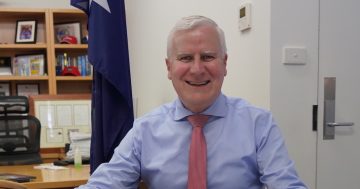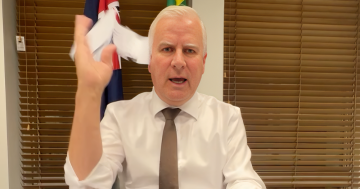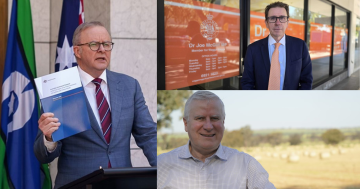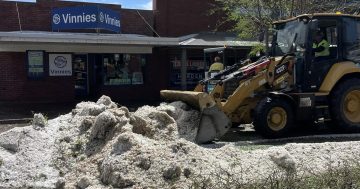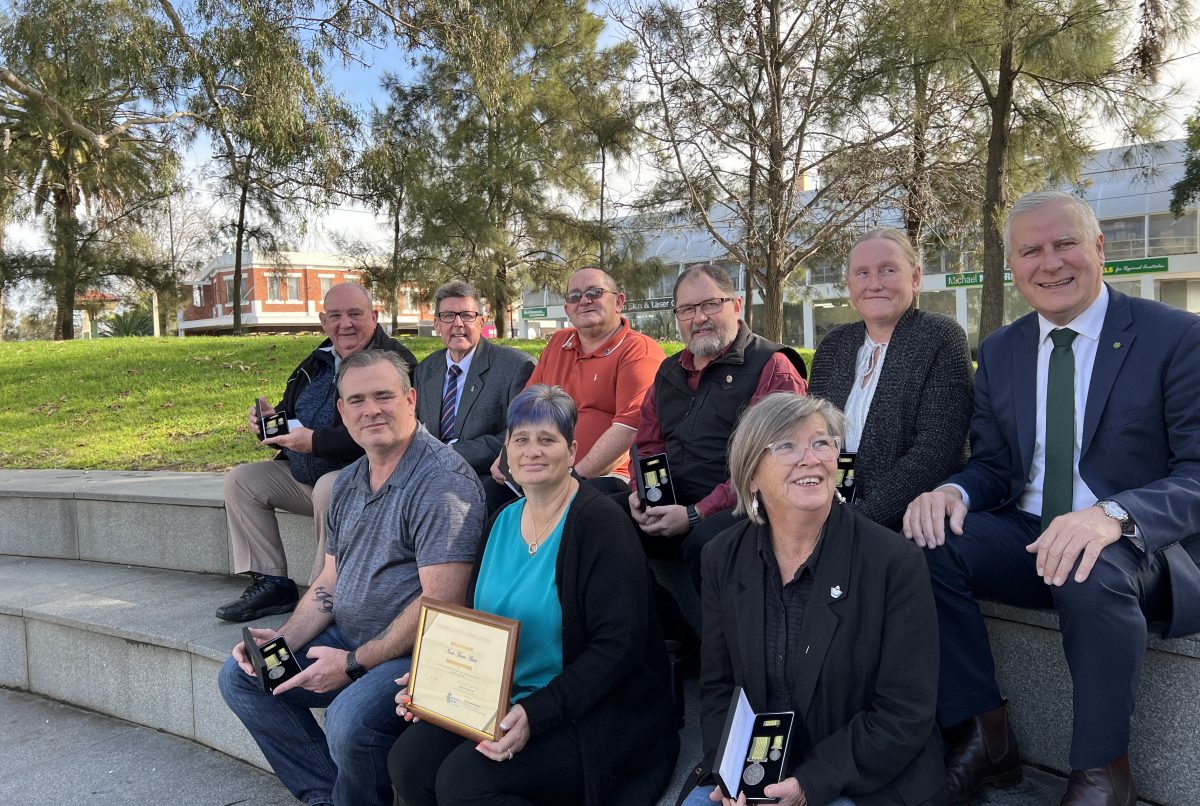
(Back, left to right) John Anderson, Rod Cooper, Steve Jenkins, Richard Salcole, Ally Jenkins and Member for Riverina Michael McCormack. (Front, left to right) Dave Abbott, Nicole Abbott and Maris Herr. Photo: Anna Maskus.
Members of the Wagga Wagga RSL Sub-Branch who aided the response to the Dunns Road bushfire in the Snowy Valley region have had their contributions formally recognised.
The Wagga recipients are among 130,000 Australians who have had the National Emergency Medal bestowed on them for their service during the infamous 2019/20 fire season.
Member for Riverina Michael McCormack said he was humbled by the efforts of the volunteers, who received their awards at a morning tea at his Wagga office.
“The recipients have shown the absolute true blue Australian qualities that come to the fore during times of crisis and emergency,” Mr McCormack said.
The Medal is awarded to those who provide sustained or significant service during significant national emergencies in Australia.
National Emergency Medals have also been awarded to those who assisted in the aftermath of the North Queensland Floods in 2019, Tropical Cyclone Debbie in 2017, Cyclone Yasi and the subsequent Queensland Floods of 2010/11 and the Black Saturday Bushfires of 2009.
The Office of the Governor General states the medals acknowledge and celebrate “the protection of lives and property or the service of interests that are not their own, in direct response to the emergency”.
“That’s what these medals are all about – recognising those people who sometimes go unrecognised at the time, acknowledging those people who sometimes don’t get the reward or recognition they really deserve,” Mr McCormack emphasised.
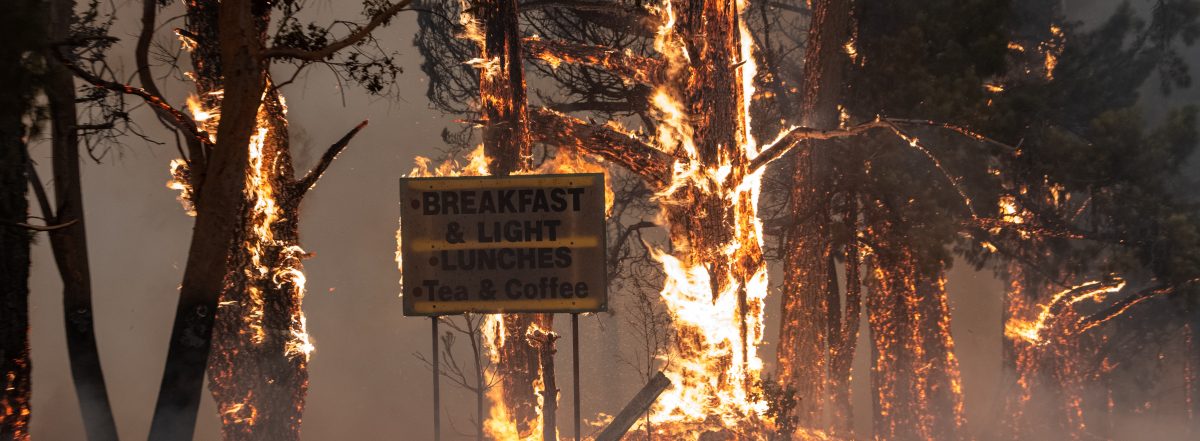
The Black Summer bushfires burned 6.2 per cent of the state – the largest burnt area recorded in a single fire season in eastern Australia. Photo: NSW RFS.
Coordinator for the contemporary veterans’ response Richard Salcole made the call for volunteers when a fellow veteran’s daughter contacted him asking for help.
“Within 15 minutes of ringing around I had 20 volunteers,” he said.
Wagga RSL Sub-Branch committee member Maris Herr recalled the evening the group were summoned to action.
“We were having drinks on New Year’s Eve when we got the call to go up and help out at the Tumbarumba evacuation centre, so we all stopped drinking and went to bed,” she said.
The volunteers all met at the Murraguldrie Veterans Retreat on New Year’s Day and set off on a terrifying drive into Tumbarumba, according to Mr Salcole.
“The sky had this eerie red glow and we were driving into smoke so thick we couldn’t see past the bonnet of the car,” he recalled.
“By the time we arrived in Tumbarumba the town had almost been completely evacuated; there was no mobile coverage and no power,”
Ms Herr described their work during that time as “just picking up pieces.”
The volunteers worked with the local Salvation Army and other community volunteers making sandwiches, cooking meals and acting as a drop off point for supplies being delivered to those on the forefront.
After the group finished their work at Tumbarumba, they returned to Wagga and assisted at the evacuation centre there.
“It was just continual for weeks and weeks and weeks,” Ms Herr said.
“I think for most of us that was the scariest thing.”
Mr Salcole spoke of firefighters coming to the Tumbarumba centre who hadn’t eaten in five days and were just happy to be able to tell someone what was happening on the front lines.
The veteran of 30 years said the group “ended up acting as an impromptu counselling service because, as veterans ourselves, many of us have been on a fire front at one point or another”.
Mr Salcole said it was an honour to receive the award but noted “there are so many out there that should be receiving this award that aren’t and that’s purely because their organisations didn’t nominate them.”
The experience of volunteering in a constantly changing and critically dangerous situation has left a lasting impression on the volunteers.
“There were moments of sheer sadness but there were also moments of great joy,” Ms Herr said.







